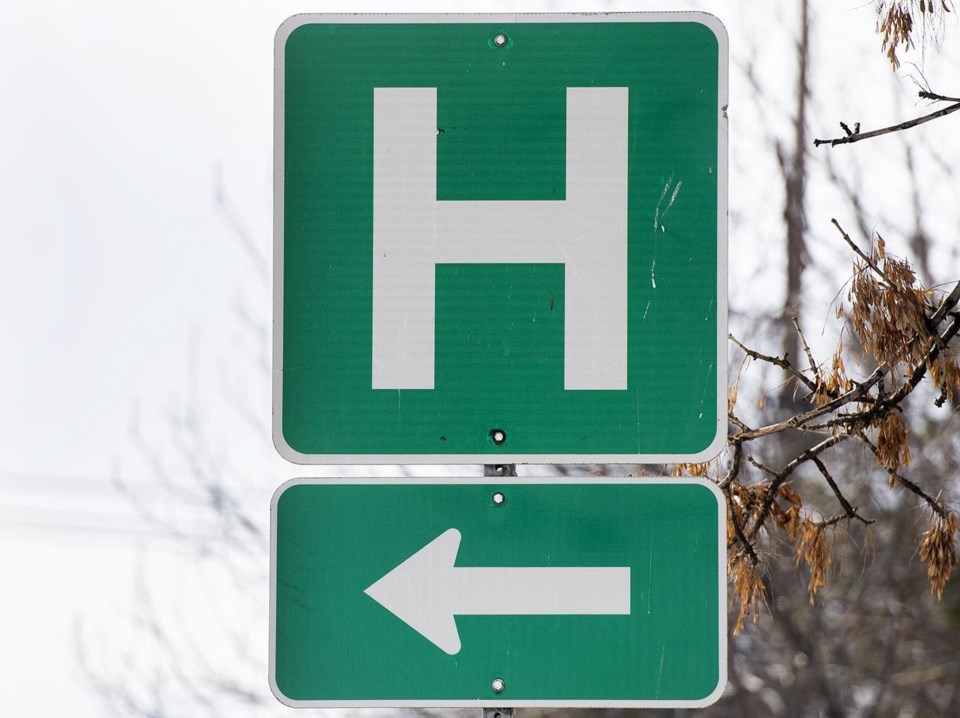HALIFAX — A Nova Scotia mayor says a patient died last week in his Annapolis Valley town after going into cardiac arrest at a hospital where no doctor was present.
Mayor Sylvester Atkinson of Middleton, N.S., says volunteer firefighters were called to the Soldiers Memorial Hospital to attend to a patient because the closest doctor was 30 minutes away.Â
Atkinson made the comments in a letter to Premier Tim Houston that was published Tuesday on social media. The letter says the fire department was called to the hospital around 9 p.m. on June 15.
“Our fire department was informed there was no doctor on site, nor was there one on call,” he wrote, adding that a doctor was en route to the hospital.
The fire department and paramedics “provided life-saving measures” until the doctor arrived, but “unfortunately, the patient did not survive,” the mayor wrote. “The doctor called time of death when they arrived on the scene.”
Annapolis MLA Carman Kerr said the emergency room closures at Soldiers Memorial have been an issue for the last two years. He issued a statement calling the situation "our worst fear."
"The community has been pressing for action for far too long with no tangible results," he said.
Health Minister Michelle Thompson told reporters Wednesday in Halifax that she couldn't comment directly on the case because of privacy concerns. She said her heart goes out to the patient’s family, who are “grieving very publicly” after the letter was posted online.
Thompson said that in rural communities, the nearest doctor is sometimes up to half an hour away, adding that the province was recruiting more health-care workers, including rural doctors.
“We know that there is a shortage of physicians,” she said, “we certainly are working very, very hard across all communities in Nova Scotia to recruit,” though she noted there was a “national and global shortage” of doctors.
In an email, Nova Scotia Health spokesperson Brendan Elliot said proper protocol was followed at the hospital and that “staff performed admirably.”
He said there is always a doctor on call for in-patient care at Soldiers Memorial Hospital. The physician, he added, can “either be on site or nearby” and can provide consultation remotely or in person.
“When additional immediate assistance is required, and a physician is in transit, protocols include calling 911,” he said via email. “The 911 operator will determine next steps and can dispatch first responders, based on the unique circumstances of the call.”
On Wednesday, Thompson unveiled at the Halifax Infirmary a “care-co-ordination centre,” a centralized data hub that provides real-time information on wait lists, bed availability, ambulance off-loads and patient transfers, as well as the status of diagnostic tests and procedures.
The $26.4-million system was piloted at the Halifax Infirmary but is slated to be rolled out provincewide over the next two years in an effort to move patients through the system more efficiently and free up valuable hospital beds, she told reporters.
The 2022 deaths of 37-year-old Allison Holthoff and 67-year-old Charlene Snow, who both waited hours to receive emergency care, prompted the province to implement changes in the health-care system, including doctor-led triage teams and extra physician assistants in emergency rooms.
A letter signed by 39 doctors earlier this year said the changes wouldn't address the root problem: a lack of bed space for ER patients, leading to overcrowding and hours-long waits for care.
When asked what a care-co-ordination centre could do in a situation where a hospital has no doctor, Thompson said the centre would allow health-care workers to “see where capacity is” in the system and transfer patients if necessary.
Karen Oldfield, interim president and CEO of Nova Scotia Health, said the province aims to hire 250 full-time health-care workers, including physiotherapists, dietitians, pharmacists, and occupational therapists, in an effort to increase hospital care on evenings and weekends.
“When receiving more timely care, seven days a week, patients will have a shorter length of stay,” Oldfield told reporters, meaning “patients can return home sooner.”
This report by The Canadian Press was first published June 21, 2023.
---
This story was produced with the financial assistance of the Meta and Canadian Press News Fellowship.
Marlo Glass, The Canadian Press



